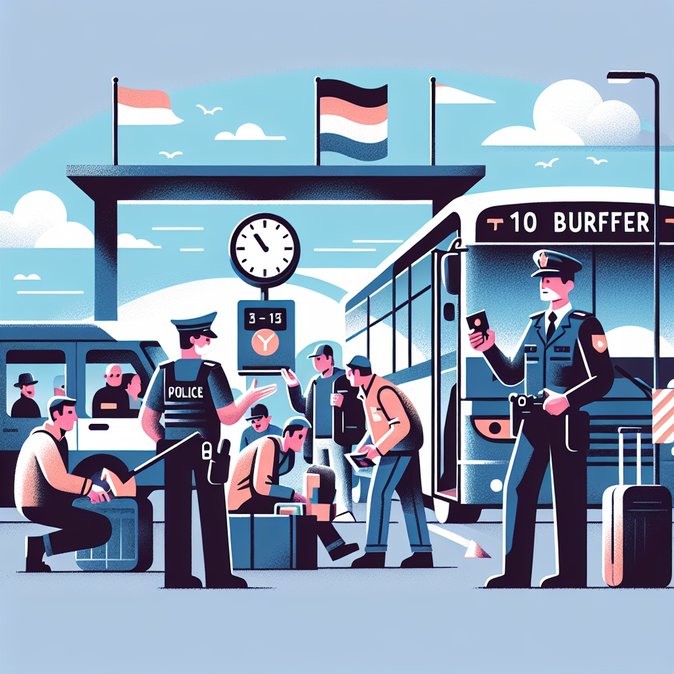
Early on 11 November Bundespolizei officers stationed at a rest area on the A30 motorway near Bad Bentheim arrested a 24-year-old bus passenger wanted on an outstanding warrant for driving without a licence. The routine inspection formed part of Germany’s temporary internal Schengen controls, in place on the Dutch and Polish borders until at least March 2026.
Key facts
• The suspect, unable to pay a €900 fine, was transferred to a local correctional facility to serve a 30-day substitute sentence.
• The long-distance coach was en route from Amsterdam to Berlin and carried 38 passengers. Checks delayed the bus by roughly 25 minutes.
![Border-control arrest highlights ongoing spot checks on Dutch frontier]()
Broader picture
Germany reinstated controls on its western and eastern land borders in September 2024 amid rising irregular migration and weapons trafficking. Monthly Federal Police statistics show that ad-hoc bus inspections account for 23 percent of all apprehensions under the regime.
Implications for employers and travel managers
1. Employees using inter-city coaches to reach German offices must carry valid passports or EU IDs; driver’s licences are insufficient.
2. Delays of 15–45 minutes are common at rest-area checkpoints—factor this into duty-of-care and scheduling policies.
3. Non-EU staff on Schengen short-stay status should track day counts carefully; overstays discovered during inland checks can trigger entry bans.
Political outlook
While the European Commission continues infringement proceedings against several member states over “prolonged” internal controls, Berlin argues the measure is proportionate and says it will review the need again before Easter. Cross-border business groups, including the Dutch-German Chamber of Commerce, have requested dedicated fast-lane signage for commuter traffic, but no decision has been made.
Key facts
• The suspect, unable to pay a €900 fine, was transferred to a local correctional facility to serve a 30-day substitute sentence.
• The long-distance coach was en route from Amsterdam to Berlin and carried 38 passengers. Checks delayed the bus by roughly 25 minutes.

Broader picture
Germany reinstated controls on its western and eastern land borders in September 2024 amid rising irregular migration and weapons trafficking. Monthly Federal Police statistics show that ad-hoc bus inspections account for 23 percent of all apprehensions under the regime.
Implications for employers and travel managers
1. Employees using inter-city coaches to reach German offices must carry valid passports or EU IDs; driver’s licences are insufficient.
2. Delays of 15–45 minutes are common at rest-area checkpoints—factor this into duty-of-care and scheduling policies.
3. Non-EU staff on Schengen short-stay status should track day counts carefully; overstays discovered during inland checks can trigger entry bans.
Political outlook
While the European Commission continues infringement proceedings against several member states over “prolonged” internal controls, Berlin argues the measure is proportionate and says it will review the need again before Easter. Cross-border business groups, including the Dutch-German Chamber of Commerce, have requested dedicated fast-lane signage for commuter traffic, but no decision has been made.








